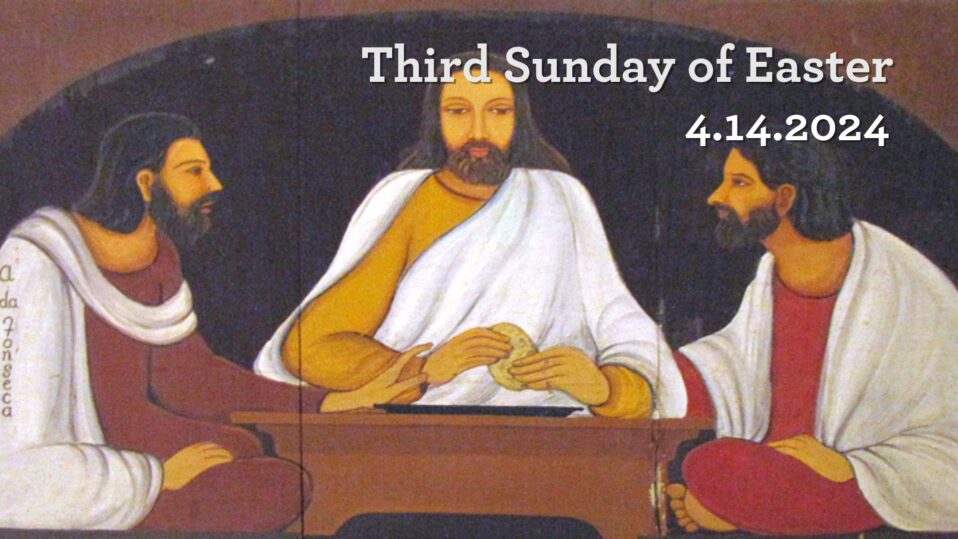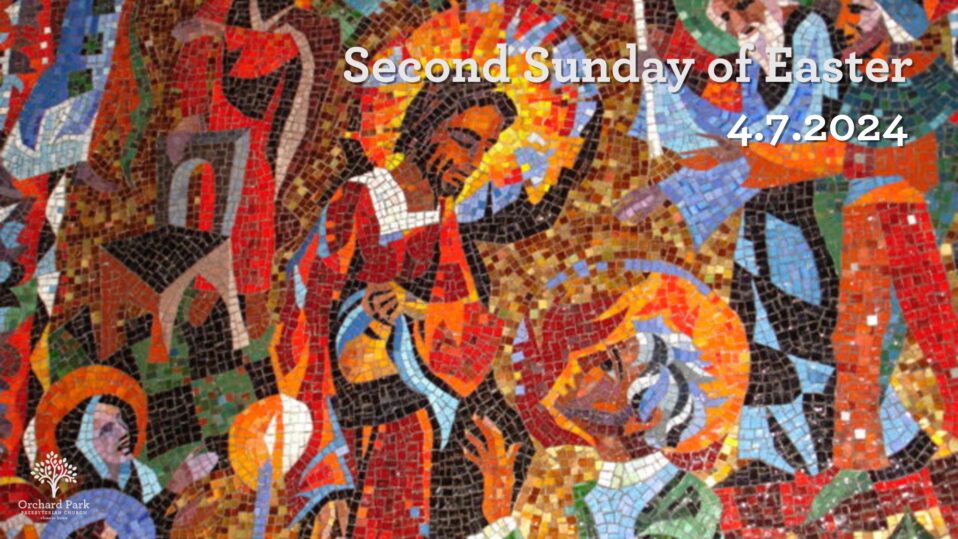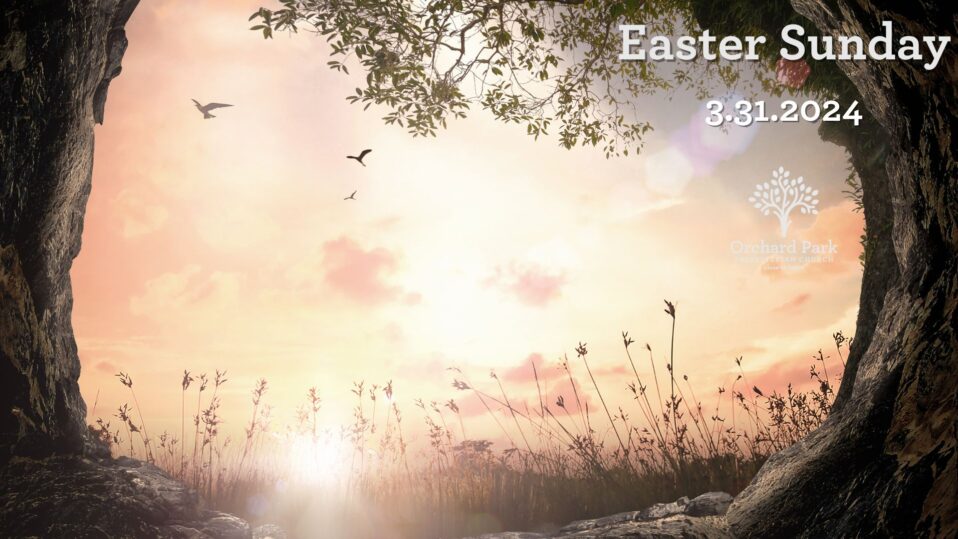March 26th, 2023
John 11: 1-45
Fifth Sunday of Lent
I have been wondering. I have been wanting to ask, “What do you want from Jesus?” Have you ever asked yourself that question? Have you ever contemplated the idea that you could ask something from Jesus, and if you could, what would you ask? In your faith life, is your understanding of the holy trinity, God, Jesus and the Holy Spirit an idea or a concept, or is it personal, vulnerable and immediate? Do you think more about what your relationship with Jesus should be, then admit to what it is? Do you desire something you are afraid to ask for and believe that you don’t deserve?
We are now in the fifth week of Lent. Next Sunday is Palm Sunday, and our journey to the cross begins. Over the past five weeks we have seen Jesus encounter people who have all asked something of Jesus. They have asked for living water, they have asked how to be born again, they have asked for their sight, and they have asked for water to be turned into wine… today we eavesdrop on a very personal story in which Jesus is not encountering strangers who are asking something of him, but his friends.
Mary, Martha and Lazarus are three siblings who have had Jesus over for dinner. He has been in their home. Lounged on their pillows, eaten their meal, enjoyed their sunporch. They have learned from him, believed in him, trusted him and known him. They are his friends. They are such good friends that Martha has no problem telling him how she feels when he shows up late after their brother has died. The caseroles have been put in the freezer, the flowers are already starting to wilt, the long, tedious work of walking through all of the administrative duties you go through after someone dies has begun. They are tired and their fuse is running short. People often tell me they know who their true friends are by the people who show up at their families funerals, and they are always touched and surprised by who comes and who doesn’t. It’s a deeply meaningful and important thing to stand behind someone as they grieve. So when Jesus doesn’t show up until it’s too late, they are confused and hurt.
Martha comes out first, seeking an explanation. She says, Lord if you had been here my brother wouldn’t not have died. Jesus responds “Your brother will rise again,” Jesus offers. “Lord, if I had wanted a Hallmark card . . . Of course he will rise again at the last day when the roll is called up yonder by and by. There are five things never to say to someone when a loved dies, here they are:
You will see them someday in heaven.
They are in a better place
God must have wanted them in heaven.
All things happen for a reason.
It must have been part of God’s plan.
Cliches that dismiss the reality of grief in the moment are not only hurtful, they are off the mark.
Jesus goes on to explain… he says “Martha, I Am the resurrection and the life. Now. Today. Martha, I Am the roll that’s called up yonder and I am now.
You don’t need to wait for someday. I am the resurrection today. If you believe in me today, you live. Martha looks at him deeply and says, I see and I believe.
Back home Mary is in the house, and she hears that Jesus has up the road. She dashes out, and all of the mourners follow her, thinking she’s going to the grave, but instead she runs to Jesus. Pay attention to that. They think she is running to the grave, but instead he runs to Jesus. She gets to him. She knows him. She’s anointed his feet. She loves him and she has no problem being vulnerable and letting the tears role down her chin on to her dress. She says the same thing Martha says, if you had been here.
Jesus’ response is to weep with her. Why does he weep? –I think he weeps because he feels it. He feels her loss. He feels her emptiness. He feels her sorrow and he joins her in that deep empathy. Sometimes the best way to be there for someone is to weep with them. Sometimes the best way see someone is to not look away from their grief, but to acknowledge it for what it is. Sometimes, when you love someone and you see them hurting, all you can do is weep.
Jesus says take me to the place where he laid. They argue a bit here that there is very little Jesus can do now. Days have passed. Isn’t that funny how we think we are in control of Jesus and that we make up the rules. Like three days in a tomb makes any difference to the son of God. Just like the Pharisees want to understand the rules of when its ok to perform a miracle, just like Nicodemus thinks he needs to literally be reborn, just like the woman at the well wants some living water, the people see only flesh and bones. Jesus, the ever patient, says take me to him. They role back the stone and Jesus calls, Lazarus, come out. – And miraculously Lazarus comes out.
And then Jesus gives an instruction that has a double meaning – unbind him and let him go…
“Unbind him and let him go.” Death teaches us to look for and identify whatever it is that keeps us from living fully. Death teaches us to never be content to be a victim, to stop whining and blaming other people for our problems, to take responsibility for our lives. Down through the centuries, the raising of Lazarus, his walking away from his grave clothes, has brought courage and hope to people living under political oppression, people who understandably knew themselves to be living in the midst of death and who decided not to allow death to have dominion over them. It was a favorite story for American slaves literally bound by their chains and for house churches in Central America, as death squads threatened and brutalized and killed; to blacks living in the nightmare of apartheid in South Africa. And this story can be your promise that Jesus Christ is on the side of life, your life, as you look for the strength and courage to walk away from whatever holds you back, keeps you from living fully the gift of your life.
“I am the resurrection and the life,” Jesus said. We have not arrived at Easter yet. As we follow him to Jerusalem in the days ahead, his triumphal entry, his betrayal, arrest, we will come finally to his own encounter with the power of death, his crucifixion. Even now, though, as he walks bravely toward his own death, we can see that he is winning the battle; that death will not defeat him; that in him death itself will be defeated; that love, the love of God that lived in him, will rise to new and everlasting life.
“Out of the depths I cry to you, O Lord.
Lord, hear my voice,” the psalmist wrote.
It is the quintessential human cry, uttered sooner or later by every one of us. We live with the presence of death daily. But, we, because we know and trust Jesus Christ, who is the resurrection and the life and who can bring life out of death, we also live with a greater reality, a more powerful power: the love of God, from which nothing, not even death can separate us, in Christ Jesus our Lord.
“Before every birth and after every death there is still God,” Bill Coffin writes at the end of his memoir. “The abyss of God’s love is deeper than the abyss of death” (pp. 169–172).
In the meantime we are free to live fully and gratefully, every day of the life that is ours, and to know that those who have gone before us are safe in the mercy and love of God.
Marilynn Robinson’s wonderful novel Gilead is about an elderly minister who has congestive heart failure and knows he doesn’t have long to live. The Reverend John Ames lost his first wife and infant daughter, Rebecca, years before, but later in life he married again and had another child, a son. The book is his letter to his son, so that the boy will remember his father.
Here I am trying to be wise, the way a father should be, the way an old pastor certainly should be. I don’t know what to say except that the worst misfortune isn’t only misfortune—and even as I write these words, I have that infant Rebecca in my mind, the way she looked when I held her, what I seem to remember, because every single time I have christened a baby I have thought of her again. That feeling of a baby’s brow against the palm of your hand—how I have loved this life. (p. 56).
At the very end, Ames writes, “Theologians talk about a prevenient grace that precedes grace itself and allows us to accept it. I think there must also be a prevenient courage that allows us to be brave—that is to acknowledge that there is more beauty than our eyes can bear, that precious things have been put into our hands and to do nothing to honor them is to do great harm” (p. 246).
Jesus wept—for the loss of his dear friend, but I think also they were tears of gratitude for the good gift of life, his own life, and the tears of joy in the promise of God’s eternal love, which would keep him through the terrible days ahead, would keep him through the valley of the shadow of death, God’s eternal love that will keep us, and our dear ones, forever.
I have been wondering. I have been wanting to ask, “What do you want from Jesus?”
“I am the resurrection and the life,” he said. “Those who believe in me, though they die, will live. And everyone who lives and believes in me will never die.”
Amen,
Rev. Dr. Shelly Wood



